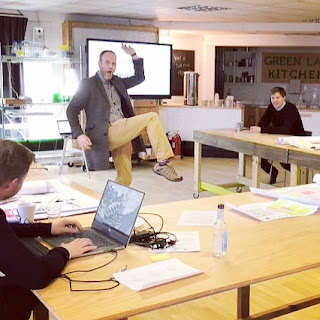A while ago, I was encouraged to create an alternative (social) entrepreneurs A-Z - and it seems to have been generally well received and appreciated by most people who've read it.
It came out of my work supporting entrepreneurs of all types over the years, and I've recently wondered if I should do the same with other parts of my 'professional' working life...
Some may know that amongst the things I 'do', is facilitate: getting a bunch of people to create, agree, or resolve something together - although it's actually usually more interesting and exciting than that sounds.
And that's the rub with being a facilitator - most fellow facilitators I know all agree that until you know what facilitation can do, and how it can benefit your team and organisation, it's hard to be able to convey the full magic of it (a bit like the first Matrix movie back in 1999: you couldn't be told what the Matrix was back then, you had to experience it for yourself, and then you'd understand it completely...)
So I've had a go at an A-Z of what it means to be a facilitator, and what you can expect of us. But as this is also about helping to explain what one is, I've tried to approach it as an acronym:
F - friendly: open and non-judgemental, on your side
A - accessible: finding ways to make things best work for you
C - childish: after all, who doesn't want to play out and have fun whenever we can?
I - idealistic: trying to keep focus on the bigger picture
L - Lego: there are lots of different styles, tools, and approaches to how facilitation can be 'done' (including playing with these magic bricks!)
I - insightful: helping probe and prod ideas and assumptions to best make sure they're 'right'
T - talkative: helping keep conversations and discussions flowing
A - accountable: if we can't make it work, then that's on us for not doing our job properly
T - tree-top views: in not being part of your team, we can bring a new perspective to help you make sure that you're seeing the 'wood for the trees'
O - open: you know your organisation and people better than we do, so we want to hear your ideas about how to make things work
R - robust: people throw a lot at us, and we can take it. Tough conversations, sensitivities, and taboos. We'll hold your confidences, but also won't take it personally or expect you to hold back if things start to bubble up
But as with all definitions, the above may be missing or mis-leading in places - so by putting this out there, I'm hoping other facilitators will be promoted to counter-suggest better words for each of the letters, and people who haven't experienced the magic that a good facilitator can bring (other than copious amounts of post-it notes, fancy pens, and sheets of flip chart paper) can start to glimpse what you might be missing out on...










